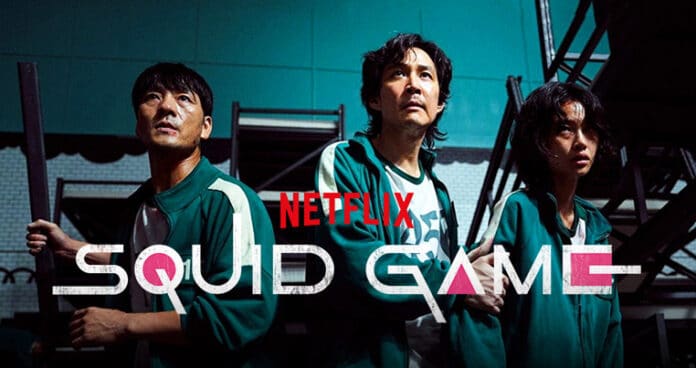Netflix has presented its viewers with another phenomenon called Squid Game. It is a violent thriller drama with a theme of a game show, much like The Hunger Games, and the Battle Royale. However, it has been gaining popularity for being bloodier and gorier than anything before. It took a twisted spin on various childhood games popular in Korea (and other parts of the world) like Red Light, Green Light, hopscotch, marbles, and tug of war.
In the show, an unusual group of 456 diverse but marginalized people, deeply sunk in debt, are lured to a remote island to play a series of games. The winner would become a multimillionaire in the end while the losers get killed. Each game is based on the old ones but with more brutal challenges. The final round is the squid game, which is also based on the real-life game of tag that includes attackers and defenders. It was popular in Korea in the 70s and 80s.
What issues Does the Squid Game Highlight?
The show’s depiction of raw human nature has connected well with viewers across the globe. It shows all characters as equal who have suffered unequal treatment in the outside world which is relatable for the viewers. Squid Game provides haunting metaphors for capitalism and socio-economic inequality. At many points, the show highlights the unequal and violent society of Korea that is still suffering from the deep emotional scars left by its disturbing history. Almost 40 years of military dictatorship (1945 – 1987), Japanese Colonization (1910 -1945), The Korean War (1950-1953), and financial crises are just to name a few.
Heart-breaking narratives of the characters suffering from economic stress point at Korea’s unregulated financial systems and lack of a social safety net. Some underclass characters are shown struggling with employment and tending to their financial problems by dealing with loan sharks, which further increases their debt. It also depicts effective slavery where North Korean refugees and South Asian migrants are often exploited even by other underclass members.
The Korean drama industry rarely takes inspiration from the violent characteristics of Hollywood but in this show, violence works as a perfect metaphor for showing a deep and dark social sickness.
Performances Steal the Show
Most of the competitions depicted in the series will seem familiar to the western audience but the changed rules may disturb them for obvious reasons. However, the show is created in such a way that audience is forced to focus on the characters rather than the games. Director Hwang Dong-hyuk said in an interview that the games were pretty simple so viewers can be invested in each character rather than the complex rules. He also mentioned that the real-life squid game was one of his favorites while growing up.
The show is filled with bloody violence and sickening scenes that are brought to life by brilliant performances. The show’s protagonist allows the viewer to study each character in detail and learn why they do what they do. The feelings can be devastating after watching how each contestant will inflict emotional cruelties on each other to get ahead.
Universal and Political Message
Squid Game not only provides a high-voltage drama but also implicitly criticizes capitalism and explores class anxiety. It shows that the contestants still arrive to play the deadly games because of ultimate desperation caused by insurmountable debt. The significance of this theme in real life is that the time of its release coincided with record-high household debts in Korea and the US. According to reports, increasing debts have heavily contributed to mental health crises across the world. Different generations of humans have suffered severe anxiety and depression due to ever building debt.
The millennials face debt because of student loans, the increased cost of living, and the adverse financial effects of the Great Recession. Generation X is tangled in overwhelming financial obligations ranging from paying mortgages, funding parents, and raising children. Baby boomers mostly carry debt from credit cards, and personal, auto, or property loans. According to reports, the total debt for Americans above 70 years of age increased by 543% between 1999 and 2019.
So just like in real life, the show accurately depicts the ‘everyman for himself’ scenario fueled by neoliberal capitalism by having the villains establish their stance as somebody who is giving people a “chance”.
Also Read
Netflix’s Fate The Winx Club Saga might Revive Your Childhood


